Search Results
Showing results 1 to 20 of 24
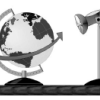
The Geophysical Light/Dark Cycle
Source Institutions
This is an activity (located on page 131 of the PDF) related to sleep and circadian rhythms as well as space travel.
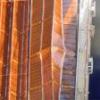
Folding Matters
Source Institutions
In this activity, learners explore how the process of folding has impacts on engineering and is evident in nature.
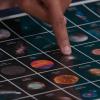
Exploring the Universe: Space Guess Quest
Source Institutions
Space Guess Quest is a fun game that encourages participants to identify the many types of objects in space, from human-made spacecraft to nebulas, galaxies, stars, and worlds.
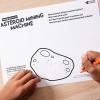
Exploring the Solar System: Asteroid Mining
Source Institutions
In this activity, learners will imagine the challenges and opportunities of asteroid mining.
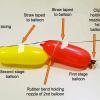
Achieving Orbit
Source Institutions
In this Engineering Design Challenge activity, learners will use balloons to investigate how a multi-stage rocket, like that used in the Interstellar Boundary Explorer (IBEX) mission, can propel a sat
Mission Insignia
Source Institutions
In this science/art activity, learners create an insignia or emblem for a planet exploration mission.
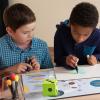
Exploring the Solar System: Mission to Space Board Game
Source Institutions
In this tabletop board game, players will represent a team of scientists and engineers sending a spacecraft on a mission to space.

Weight in Space
Source Institutions
In this activity, learners are challenged to calculate their own weight on various planets using a scale and calculator. Older learners may be challenged to do so without using calculators.
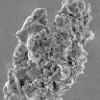
Properties of Dust
Source Institutions
In this activity, learners carry out a scientific investigation of dust in their classroom. Learners produce an analysis on graph paper of the dust they collect over the course of a few days.

Black Holes: No Escape
Source Institutions
This fun and simple hands-on astronomy activity lets learners experiment with marbles and weights to discover some basics about gravity and black holes.
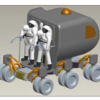
Cooling Off
Source Institutions
In this activity, learners are introduced to challenges of maintaining temperatures while living in space.
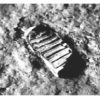
Regolith Formation
Source Institutions
In this three-part activity, learners use food to determine the effects of wind, sandblasting and water on regolith (dust) formation and deposition on Earth.
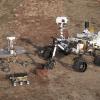
Rover Races
Source Institutions
In this activity, learners experience some of the challenges of "tele-operating" a robotic vehicle on another planet when they design and execute a series of commands to guide a human "rover" through
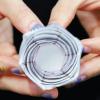
Space Origami: Make Your Own Starshade
Source Institutions
In this activity, learners cut out and fold their own collapsible origami starshade, an invention that shields a telescope's camera lens from the light of a distant star so that NASA scientists can ex
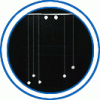
Build the Big Dipper
Source Institutions
Learners use simple materials to construct a model the Big Dipper. Learners hang the model from a doorway or ceiling and look up at it to see the constellation as seen from Earth.
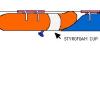
Balloon Staging
Source Institutions
In this activity, learners simulate a multistage rocket launch using party balloons, fishing line, straws, and a plastic cup.
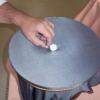
Gravity and Falling
Source Institutions
This fun and simple hands-on astronomy activity lets learners experiment with a bucket, stretchy fabric, marbles, and weights to discover some basics about gravity.
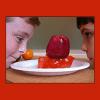
Space Jell-O
Source Institutions
Albert Einstein proved that space bends around anything that has mass. This activity uses Jell-O's ability to bend around objects as a model for space bending around planets and stars.
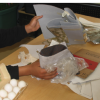
Exploration Vehicles
Source Institutions
Using recycled materials, learners will design a transportation vehicle to carry an egg in an egg toss (a rudimentary model of a shock absorbent transport vessel).
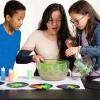
Exploring the Universe: Nebula Spin Art
Source Institutions
In this activity, participants will learn about how gigantic clouds of gas and dust in space, called nebulas, are formed. They'll create their own colorful model nebula using paint and a spinner.
